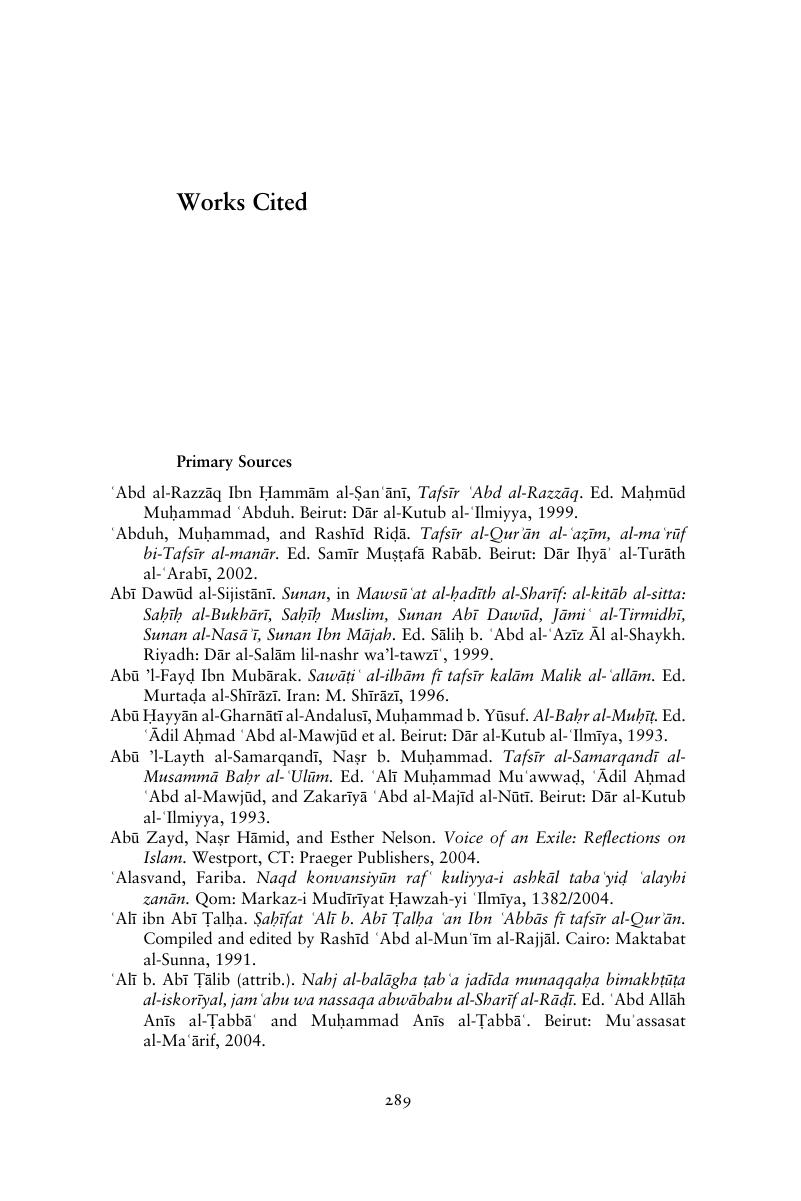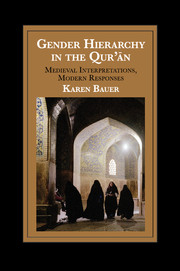Book contents
- Gender Hierarchy in the QurʾānMedieval Interpretations, Modern Responses
- Dedication
- Cambridge Studies in Islamic Civilization
- Gender Hierarchy in the Qurʾān
- Copyright page
- Contents
- Book part
- A Note on Names and Transliterations
- Introduction
- Testimony
- Creation
- Marriage
- Works Cited
- Index
- Series page
- References
Works Cited
Published online by Cambridge University Press: 05 June 2015
- Gender Hierarchy in the QurʾānMedieval Interpretations, Modern Responses
- Dedication
- Cambridge Studies in Islamic Civilization
- Gender Hierarchy in the Qurʾān
- Copyright page
- Contents
- Book part
- A Note on Names and Transliterations
- Introduction
- Testimony
- Creation
- Marriage
- Works Cited
- Index
- Series page
- References
Summary

- Type
- Chapter
- Information
- Gender Hierarchy in the Qur'anMedieval Interpretations, Modern Responses, pp. 289 - 300Publisher: Cambridge University PressPrint publication year: 2015



